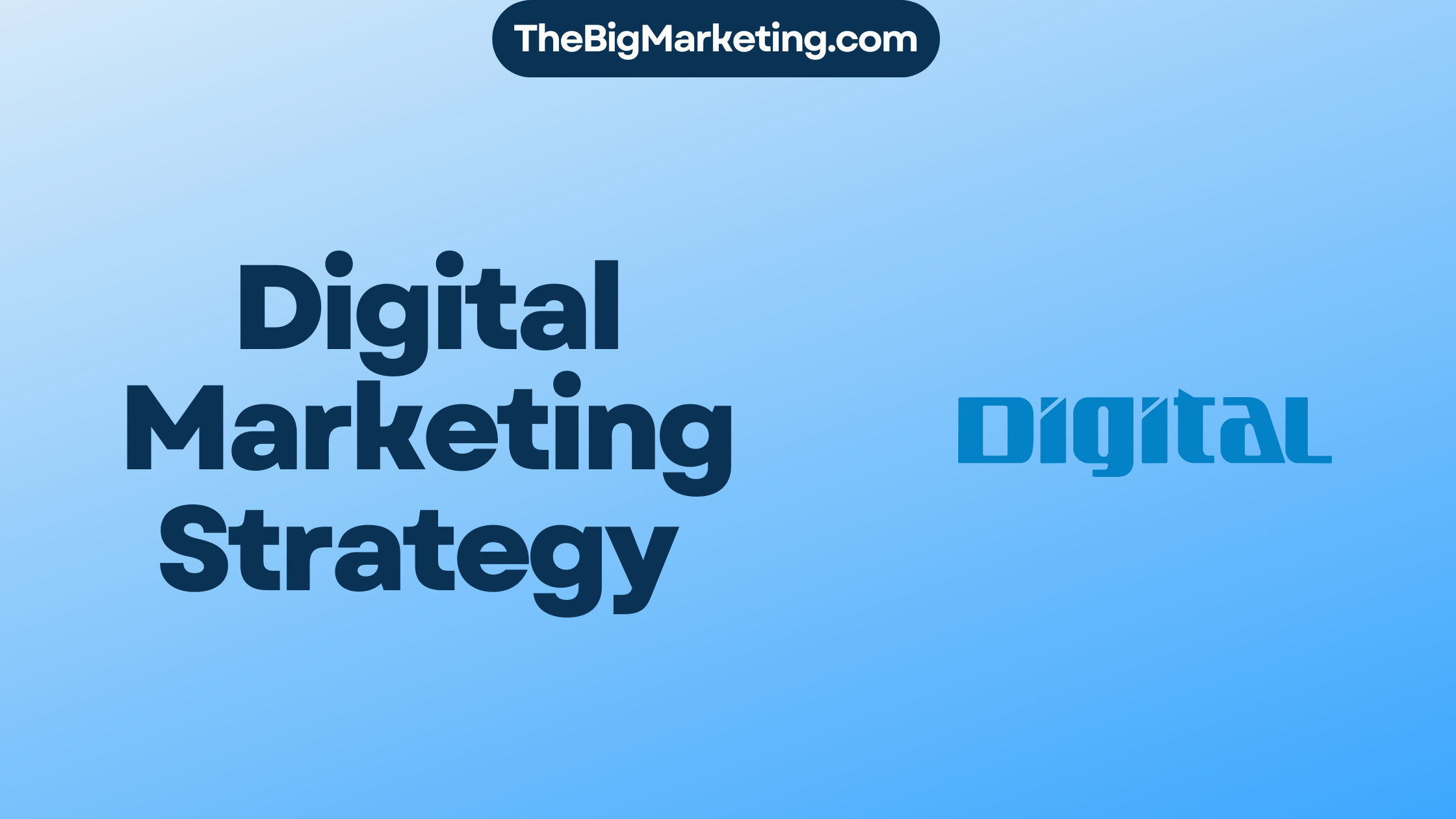In today’s digital age, customer relationship management (CRM) software plays a crucial role in helping businesses streamline their sales and marketing processes, drive revenue growth, and enhance customer relationships. Salesforce, a leading CRM platform, offers two powerful solutions – Sales Cloud and Marketing Cloud – each designed to address specific business needs and objectives.
In this article, we will provide a comprehensive comparison between Sales Cloud and Marketing Cloud. We will delve into their key features, deployment options, pricing, and supported industries, enabling you to make an informed decision about which solution is the best fit for your business.
Key Takeaways:
- Sales Cloud and Marketing Cloud are two popular CRM solutions offered by Salesforce.
- Sales Cloud focuses on closing deals and generating revenue, while Marketing Cloud focuses on lead identification and targeted marketing campaigns.
- Both solutions offer cloud-based deployment options, providing scalability and accessibility.
- Sales Cloud offers features such as lead and account management, while Marketing Cloud offers capabilities like social media marketing and data analytics.
- Integrating Sales Cloud and Marketing Cloud can lead to better collaboration and alignment between sales and marketing teams.
Salesforce Sales Cloud vs Salesforce Marketing Cloud: Key Similarities
While Sales Cloud and Marketing Cloud are both part of the Salesforce CRM suite, they serve different purposes within the customer lifecycle.
Sales Cloud focuses on closing deals and generating revenue, helping businesses streamline their sales processes and manage customer relationships effectively. It offers features such as lead management, opportunity management, account management, contact management, case management, and workflow automation.
On the other hand, Marketing Cloud is designed to identify leads and guide them towards your product or service. It empowers businesses to run targeted marketing campaigns and leverage social media marketing, email marketing, advertising management, and data analytics to enhance their marketing efforts and drive customer engagement.
Despite their differences, both Sales Cloud and Marketing Cloud emphasize the importance of sales and marketing alignment in driving business success. By integrating these two solutions, businesses can foster collaboration between their sales and marketing teams, ensuring a seamless customer experience throughout the entire customer lifecycle.
Table: Feature Comparison of Salesforce Sales Cloud and Salesforce Marketing Cloud
| Features | Sales Cloud | Marketing Cloud |
|---|---|---|
| Lead Management | ✓ | ✓ |
| Opportunity Management | ✓ | – |
| Account Management | ✓ | – |
| Contact Management | ✓ | – |
| Case Management | ✓ | – |
| Workflow Automation | ✓ | – |
| Social Media Marketing | – | ✓ |
| Email Marketing | – | ✓ |
| Advertising Management | – | ✓ |
| Data Analytics | – | ✓ |
Deployment Options of Sales Cloud and Marketing Cloud
Salesforce Sales Cloud and Marketing Cloud provide businesses with flexible deployment options to meet their unique needs. Both solutions offer cloud-based CRM software, allowing users to access and manage their data online. This cloud-based approach eliminates the need for on-premise infrastructure, leading to enhanced scalability and accessibility. However, Salesforce also provides the option for businesses to deploy their solutions on-premise, giving them more control over their data and IT infrastructure.
Cloud-based CRM offers numerous benefits, including:
- Easy Accessibility: Access your CRM data securely from anywhere, at any time, using any device with an internet connection.
- Seamless Scaling: Scale your CRM system as your business grows, without the need for additional hardware or software investments.
- Automatic Updates: Benefit from regular updates and feature enhancements delivered seamlessly by Salesforce, ensuring you always have access to the latest CRM capabilities.
- Reduced IT Burden: With cloud-based CRM, you don’t need to worry about maintenance, backups, or infrastructure management, as it is all handled by Salesforce.
On the other hand, on-premise CRM deployments offer businesses the following advantages:
- Data Control: Have full control over your data security, storage, and backups by hosting your CRM solution within your own infrastructure.
- Customization Flexibility: Customize and tailor your CRM system to meet your specific business requirements, without limits imposed by a cloud-based solution.
- Integration Capability: Integrate your on-premise CRM with other internal systems and applications for seamless data flow and enhanced workflow automation.
- Compliance Requirements: For businesses operating in highly regulated industries or with stringent compliance policies, an on-premise CRM deployment may offer better adherence to security and privacy regulations.
Ultimately, the decision between cloud-based or on-premise CRM deployment depends on your business preferences, data control requirements, and IT infrastructure capabilities. It’s important to assess your specific needs and consult with Salesforce experts to determine the most suitable deployment option for your organization.
Software Updates in Sales Cloud and Marketing Cloud
One of the key advantages of Salesforce Sales Cloud and Marketing Cloud is the continuous software updates provided by Salesforce. These updates ensure that customers have access to the latest features and improvements, enabling them to stay ahead of the competition and effectively manage their CRM processes.
With cloud-based solutions like Sales Cloud and Marketing Cloud, software updates are seamlessly delivered to users. This means that businesses no longer have to go through the hassle of manual software installations or worry about missing out on critical updates. Instead, they can focus on utilizing the most up-to-date CRM capabilities to drive their sales and marketing efforts.
Continuous innovation is at the core of Salesforce’s commitment to its customers. By regularly updating Sales Cloud and Marketing Cloud, Salesforce ensures that businesses can leverage the latest technologies and functionalities to optimize their operations. This allows businesses to stay relevant in a fast-paced and ever-evolving business landscape.
Benefits of Software Updates:
- Access to the latest features and functionalities
- Improved system performance and stability
- Bug fixes and security patches
- Enhanced user experience
- Compatibility with emerging technologies
Table: Comparison of Software Updates in Sales Cloud and Marketing Cloud
| Software Updates | Sales Cloud | Marketing Cloud |
|---|---|---|
| Frequency | Monthly | Bi-Weekly |
| New Features | Lead Management, Opportunity Management, Account Management | Social Media Marketing, Email Marketing, Advertising Management |
| Enhancements | Workflow Automation, Integration with Outlook and Gmail | Data Analytics, Lead Identification |
| Bug Fixes | Improved Stability and Performance | Enhanced User Experience |
Supported Industries for Sales Cloud and Marketing Cloud
Sales Cloud and Marketing Cloud are versatile CRM solutions that cater to a wide range of industries. Salesforce, the provider of these solutions, offers industry-specific features and tailored solutions to meet the unique needs of various sectors. Whether you are in healthcare, finance, manufacturing, retail, or any other industry, Salesforce has industry-specific solutions that seamlessly integrate with Sales Cloud and Marketing Cloud.
By leveraging these industry-focused solutions, businesses can harness the power of CRM capabilities that are specifically designed for their industry. This tailored approach allows organizations to optimize their sales and marketing strategies, improve customer relationships, and drive business growth.
Industry-Specific Features Supported by Sales Cloud and Marketing Cloud
| Industry | Sales Cloud Features | Marketing Cloud Features |
|---|---|---|
| Healthcare | Lead management for patient acquisition | Personalized healthcare campaigns |
| Finance | Opportunity tracking for financial services | Targeted financial product promotions |
| Manufacturing | Account management for B2B relationships | Automated supplier communication |
| Retail | Merchandising and inventory management | Omnichannel marketing campaigns |
These industry-specific features are just a glimpse of the capabilities that Sales Cloud and Marketing Cloud provide across different sectors. Salesforce’s industry solutions open up new opportunities for businesses to adapt CRM to their specific industry requirements and gain a competitive edge in their market.
By aligning their CRM efforts with industry-specific features and solutions, organizations can effectively streamline their sales processes, target the right audience, and deliver personalized marketing campaigns that resonate with their customers.
Key Features and Pricing of Salesforce Sales Cloud
Salesforce Sales Cloud is a comprehensive sales management tool that helps businesses streamline their sales processes. With its robust features and user-friendly interface, Sales Cloud empowers sales teams to effectively manage their sales funnel, leads, accounts, opportunities, and contacts. This enables businesses to drive revenue growth and enhance customer relationships.
Sales Funnel Management
Sales Cloud provides powerful sales funnel management capabilities, allowing businesses to track and visualize the entire sales process. Sales reps can easily monitor the progress of deals, identify bottlenecks, and prioritize their activities to optimize conversion rates.
Lead Management
The lead management feature in Sales Cloud enables businesses to efficiently capture, track, and nurture leads. Sales teams can automate lead assignment, follow-up reminders, and lead scoring, ensuring that every lead is effectively managed and converted into sales opportunities.
Account Management
Sales Cloud offers robust account management functionality, allowing businesses to centralize and manage customer account information. Sales teams can easily access account details, review engagement history, and collaborate with cross-functional teams to drive customer success.
Opportunity Management
The opportunity management feature in Sales Cloud helps sales teams effectively track and manage sales opportunities from initial contact to closure. Sales reps can update opportunity stages, assign tasks, and collaborate with team members to drive deal progression.
Contact Management
Sales Cloud enables businesses to consolidate and organize all customer contact information in one central location. Sales reps can easily view and update contact details, track communication history, and leverage valuable insights to personalize customer interactions.
Additionally, Sales Cloud offers a range of other features to enhance sales productivity, such as case management for tracking customer service requests, workflow automation for streamlining repetitive tasks, and seamless integrations with popular email platforms like Outlook and Gmail.
Pricing Tiers
Salesforce Sales Cloud offers four pricing tiers, allowing businesses to choose a subscription plan that aligns with their specific needs and budget. The pricing tiers are as follows:
| Essentials | Professional | Enterprise | Unlimited |
|---|---|---|---|
| Basic sales and CRM features | Advanced CRM functionality | Customizable CRM capabilities | Premium CRM features and support |
| $25/user/month | $75/user/month | $150/user/month | Contact Salesforce for pricing details |
These pricing options ensure that businesses of all sizes can access the features and functionality of Salesforce Sales Cloud, regardless of their budget constraints.
Next, we will explore the key features and pricing of Salesforce Marketing Cloud, providing insights into how this powerful marketing automation platform can benefit businesses.
Key Features and Pricing of Salesforce Marketing Cloud
Salesforce Marketing Cloud is a robust marketing automation platform that empowers businesses to effectively identify leads, nurture marketing relationships, and execute targeted customer campaigns. With a wide range of features and capabilities, Salesforce Marketing Cloud provides comprehensive solutions for businesses looking to maximize their marketing efforts.
Lead Identification
One of the key features of Salesforce Marketing Cloud is its advanced lead identification capabilities. The platform allows businesses to track and identify potential leads, enabling them to target their marketing campaigns more effectively. By leveraging customer data and segmentation, businesses can deliver personalized messages and offers to prospects, increasing the chances of conversion.
Social Media Marketing
With Salesforce Marketing Cloud, businesses can effortlessly manage their social media marketing strategies. The platform provides tools for planning, creating, scheduling, and publishing social media content across various platforms. By utilizing social media analytics, businesses can gain valuable insights into audience engagement and optimize their social media campaigns for better results.
Email Marketing
Email marketing is a powerful tool for reaching customers, and Salesforce Marketing Cloud offers robust capabilities in this area. The platform allows businesses to create and send personalized email campaigns to target audiences. With features like email template creation, automation, and tracking, businesses can optimize their email marketing efforts to drive engagement and conversions.
Advertising Management
Marketing Cloud enables businesses to effectively manage their digital advertising campaigns. It provides tools for creating, managing, and optimizing ads across different channels, such as search engines and social media platforms. By leveraging data analytics and targeting capabilities, businesses can maximize the impact of their advertising investments and achieve better ROI.
Data Analytics
Data analytics is a critical component of any marketing strategy, and Salesforce Marketing Cloud offers robust analytics capabilities. The platform provides comprehensive reporting and analytics tools that help businesses gain actionable insights into their marketing campaigns. With real-time analytics and data visualization, businesses can track campaign performance, identify trends, and make data-driven decisions to optimize their marketing efforts.
Pricing Modules
Salesforce Marketing Cloud offers flexible pricing modules that cater to the unique needs of businesses. The platform allows businesses to choose specific modules based on their marketing strategies and objectives. By selecting the modules that align with their goals, businesses can optimize their investment in Salesforce Marketing Cloud and ensure they have access to the features necessary to drive their marketing success.
| Pricing Module | Description |
|---|---|
| Lead Identification | Advanced lead tracking and segmentation capabilities |
| Social Media Marketing | Tools for planning, creating, and publishing social media content |
| Email Marketing | Features for creating, automating, and tracking personalized email campaigns |
| Advertising Management | Capabilities to create, manage, and optimize digital advertising campaigns |
| Data Analytics | Comprehensive reporting and analytics tools for campaign performance analysis |
Integrating Sales Cloud and Marketing Cloud
Salesforce Sales Cloud and Marketing Cloud can be seamlessly integrated with each other and other Salesforce solutions. This integration allows for the efficient exchange of information and insights between sales and marketing teams, enabling better collaboration and alignment.
By integrating Sales Cloud and Marketing Cloud, businesses can leverage the seamless data exchange to gain a holistic view of their customers and prospects. This unified approach to customer relationship management (CRM) maximizes the benefits of both systems and enhances the overall efficiency of sales and marketing processes.
The integration of Sales Cloud and Marketing Cloud also enables businesses to take full advantage of the Salesforce ecosystem. With the ability to connect with other Salesforce solutions, such as Service Cloud and Commerce Cloud, businesses can create a comprehensive CRM strategy that encompasses sales, marketing, customer service, and e-commerce.
Benefits of Integrating Sales Cloud and Marketing Cloud
1. Seamless Data Exchange: When Sales Cloud and Marketing Cloud are integrated, customer data is automatically synchronized between the two systems. This ensures that sales reps have access to up-to-date information about leads and contacts, while marketers can track the progress and success of their campaigns.
2. Improved Collaboration and Alignment: Integrating Sales Cloud and Marketing Cloud allows teams to work together more efficiently. Sales reps can provide valuable insights and feedback to marketers, enabling them to refine and optimize their campaigns. Similarly, marketers can provide sales reps with valuable lead intelligence, helping them prioritize their efforts and close deals more effectively.
3. Enhanced Lead Management: With the integration of Sales Cloud and Marketing Cloud, businesses can seamlessly transfer leads from marketing to sales. This ensures a smooth handoff between the two teams and reduces the risk of leads falling through the cracks. Sales reps can then focus on converting these leads into customers and driving revenue.
4. Comprehensive Reporting and Analytics: The integration of Sales Cloud and Marketing Cloud provides businesses with a comprehensive view of their sales and marketing performance. By synchronizing data from both systems, businesses can generate in-depth reports and analytics that provide actionable insights for driving business growth.
5. Streamlined Sales and Marketing Processes: Integrating Sales Cloud and Marketing Cloud eliminates manual data entry and streamlines sales and marketing workflows. This saves time and effort for both teams, allowing them to focus on what they do best – closing deals and running successful marketing campaigns.
In conclusion, integrating Sales Cloud and Marketing Cloud is a strategic move for businesses looking to optimize their CRM processes and drive growth. By seamlessly exchanging data and insights between sales and marketing teams, businesses can enhance collaboration, improve lead management, and harness the full power of the Salesforce ecosystem.
Choosing the Right Salesforce Cloud Solution for Your Business
When it comes to selecting the right CRM solution for your business, it’s essential to consider your specific needs and objectives. Salesforce offers two powerful options: Sales Cloud and Marketing Cloud. Making the right decision depends on factors such as your customer acquisition processes, sales and marketing objectives, and overall business requirements.
Assess Your Business Needs
Start by assessing your business needs and priorities. Consider the primary focus of your organization – whether it is sales-driven or marketing-oriented. Understanding your business requirements will help you determine which Salesforce Cloud solution aligns best with your goals.
Sales Cloud vs. Marketing Cloud
Sales Cloud is designed for businesses that aim to improve the sales funnel, close deals, and generate revenue. It provides comprehensive sales management tools and features, including lead management, account management, opportunity management, and contact management.
On the other hand, if your main focus is reaching the right audiences, enhancing lead generation, and running targeted marketing campaigns, Marketing Cloud may be the more suitable option. Marketing Cloud offers powerful marketing automation capabilities, including lead identification, social media marketing, email marketing, and advertising management.
Aligning Sales and Marketing Objectives
While Sales Cloud and Marketing Cloud serve distinct purposes, they can be used together to maximize the benefits of both systems. Aligning your sales and marketing objectives is crucial to achieving efficient customer acquisition processes. Integrating Sales Cloud and Marketing Cloud enables seamless data exchange, improved collaboration between teams, and a holistic approach to customer relationship management.
| Choosing the Right Salesforce Cloud Solution | Sales Cloud | Marketing Cloud |
|---|---|---|
| Primary Focus | Improving sales funnel, closing deals, generating revenue | Reaching right audiences, enhancing lead generation, running targeted marketing campaigns |
| Key Features |
|
|
| Integration Benefits | Efficient customer acquisition processes, seamless data exchange, improved collaboration | |
Choosing between Sales Cloud and Marketing Cloud ultimately depends on aligning the CRM solution with your specific sales and marketing goals.
Using Salesforce Sales Cloud and Marketing Cloud Together
Businesses can maximize the benefits of their CRM strategy by using both Sales Cloud and Marketing Cloud together. As part of the same Salesforce platform, these two solutions integrate seamlessly with each other, enabling efficient business operations and driving better customer experiences.
While Sales Cloud focuses on closing deals and generating revenue, Marketing Cloud plays a vital role in lead identification and running targeted marketing campaigns. By combining these solutions, businesses can take a comprehensive approach to customer relationship management, aligning their sales and marketing efforts for optimal results.
One of the key advantages of integrating Sales Cloud and Marketing Cloud is the seamless exchange of data between the two systems. This integration eliminates data silos, allowing sales and marketing teams to access real-time information and insights. Such collaboration leads to improved lead conversion rates, enhanced customer engagement, and better overall business performance.
Furthermore, using Sales Cloud and Marketing Cloud together enables businesses to leverage the combined benefits of these powerful tools. Sales Cloud enhances sales pipeline management, automates sales processes, and provides comprehensive customer data for informed decision-making. Marketing Cloud, on the other hand, offers advanced marketing automation capabilities, enabling targeted and personalized campaigns across various channels.

In summary, the integration of Sales Cloud and Marketing Cloud creates a powerful CRM ecosystem that enables businesses to streamline their sales and marketing operations. By leveraging the combined capabilities of these solutions, businesses can achieve optimal efficiency, seamless collaboration, and improved customer experiences. Whether it’s managing leads, closing deals, or running effective marketing campaigns, the combined power of Sales Cloud and Marketing Cloud drives efficient business operations and helps organizations achieve their goals.
Salesforce Sales Cloud vs Salesforce Marketing Cloud: Which Is Right for Your Business?
Choosing the right Salesforce Cloud solution for your business requires a careful assessment of your specific business requirements, goals, and budget. It’s essential to evaluate your sales and marketing processes, customer acquisition strategies, and desired outcomes to determine whether Sales Cloud or Marketing Cloud aligns more closely with your needs. To make an informed decision, consider consulting with Salesforce experts or software professionals who can provide guidance and insights based on your unique business circumstances.
When assessing your business requirements, consider the following factors:
- Customer Acquisition Processes: Analyze your sales and marketing approaches to identify whether Sales Cloud or Marketing Cloud can better support your customer acquisition efforts. For instance, if you rely heavily on lead generation and targeted campaigns, Marketing Cloud might be the ideal choice.
- Sales and Marketing Objectives: Clearly define your sales and marketing objectives to determine which Salesforce Cloud solution can best help you achieve them. If your primary focus is on closing deals and generating revenue, Sales Cloud’s comprehensive sales management features may be the right fit.
- Business Requirements Assessment: Perform an in-depth evaluation of your business requirements, factoring in factors such as data management, forecasting, reporting, and collaboration. Consider whether Sales Cloud or Marketing Cloud can meet these requirements effectively.
- CRM Software Selection: Conduct a thorough comparison of the key features, functionalities, and pricing models of Sales Cloud and Marketing Cloud. Assess how each solution aligns with your business goals and select the one that offers the most value for your investment.
- Salesforce Consultation: Seeking guidance from experienced Salesforce consultants or software professionals can provide valuable insights and recommendations tailored to your specific business needs. These experts can help you navigate the decision-making process and optimize your CRM implementation for long-term success.
Expert Guidance for Salesforce CRM Selection
When it comes to selecting the right Salesforce Cloud solution, making an informed decision is crucial for unlocking the full potential of your CRM implementation. By thoroughly assessing your business requirements, consulting with experts, and considering the unique aspects of Sales Cloud and Marketing Cloud, you can confidently choose the Salesforce Cloud solution that best aligns with your business objectives.
Conclusion
In conclusion, Sales Cloud and Marketing Cloud are two powerful CRM solutions provided by Salesforce that serve distinct purposes within the customer relationship management process. Sales Cloud focuses on sales management and revenue generation, offering features such as lead management, account management, and opportunity management. On the other hand, Marketing Cloud is designed for lead identification and targeted marketing campaigns, with features like social media marketing, email marketing, and advertising management.
When making a decision between Sales Cloud and Marketing Cloud, it is crucial to evaluate your specific business requirements and objectives. Consider whether your primary goal is to streamline sales processes and generate revenue, or if you prioritize reaching the right audiences and running effective marketing campaigns. Understanding the differences and aligning the solution with your needs will help you make an informed decision and select the Salesforce Cloud solution that best fits your organization.
Both Sales Cloud and Marketing Cloud offer a wide range of features and benefits, providing businesses with the tools they need to effectively manage their sales and marketing strategies. Whether you choose Sales Cloud, Marketing Cloud, or both, integrating these solutions within your Salesforce ecosystem can lead to more efficient business operations and improved collaboration between sales and marketing teams. Ultimately, the key to success lies in leveraging the right CRM solution for your unique business circumstances and goals.
FAQ
What is the difference between Sales Cloud and Marketing Cloud?
Sales Cloud focuses on closing deals and generating revenue, while Marketing Cloud helps with lead identification and targeted marketing campaigns.
Are Sales Cloud and Marketing Cloud both cloud-based CRM software?
Yes, both Sales Cloud and Marketing Cloud are cloud-based CRM software, accessible and managed online.
Can Salesforce solutions be deployed on-premise?
Yes, Salesforce solutions can also be deployed on-premise for businesses that prefer more control over their data and IT infrastructure.
How often are Sales Cloud and Marketing Cloud updated?
Salesforce regularly updates Sales Cloud and Marketing Cloud, ensuring customers have access to the latest features and improvements.
Which industries are supported by Sales Cloud and Marketing Cloud?
Salesforce offers industry-specific features and solutions for various sectors, including healthcare, finance, manufacturing, retail, and more.
What are the key features of Salesforce Sales Cloud?
Salesforce Sales Cloud includes lead management, account management, opportunity management, contact management, case management, workflow automation, and integrations with Outlook and Gmail.
What are the key features of Salesforce Marketing Cloud?
Salesforce Marketing Cloud offers lead identification, social media marketing, email marketing, advertising management, data analytics, and more.
Can Sales Cloud and Marketing Cloud be integrated with each other?
Yes, Sales Cloud and Marketing Cloud can be seamlessly integrated with each other and other Salesforce solutions for efficient collaboration and data exchange.
How do I choose between Sales Cloud and Marketing Cloud?
Choose based on your business needs and objectives. Sales Cloud is best for improving the sales funnel and generating revenue, while Marketing Cloud is more suitable for reaching audiences and running targeted marketing campaigns.
Can I use Sales Cloud and Marketing Cloud together?
Yes, using Sales Cloud and Marketing Cloud together offers a more comprehensive approach to customer relationship management and maximizes the benefits of both solutions.
How do I choose the right Salesforce Cloud solution for my business?
Assess your specific business requirements, goals, and budget to determine whether Sales Cloud or Marketing Cloud aligns more closely with your needs. Consulting with Salesforce experts or software professionals can also provide guidance.
Which Salesforce Cloud solution is right for my business?
The right solution depends on your business requirements. Evaluate your sales and marketing processes, customer acquisition strategies, and desired outcomes to make an informed decision on Sales Cloud or Marketing Cloud.




